If you have British and/or Irish roots, is it possible to find your ancestors online without paying? That’s a question I’m sometimes asked. So I thought it would be useful to have a run through of the important record sets you can actually find on the web for free. So here is an overview of how you should be able to find (at least some) of your ancestry for free.
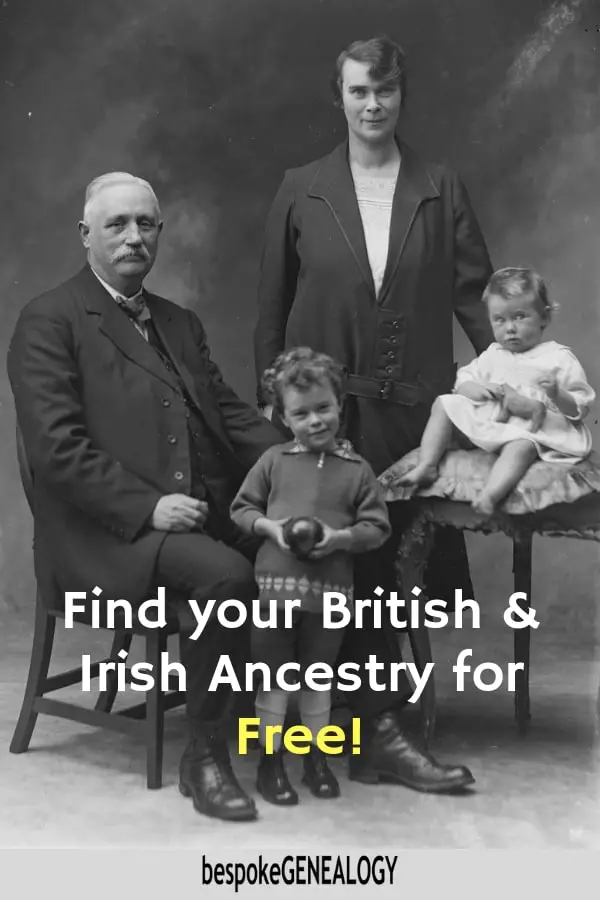
How successful you are at finding free information for your ancestors will depend largely on where they came from. Some areas are better served with free records than others. For example, scans of original civil birth, marriage and death records can be downloaded for free in Ireland, but have to be paid for in Britain, although the indexes can (mostly) be accessed without paying. I’ve covered a lot of this information before in other posts, but it’s probably helpful to put everything in one place here.
You will probably have to eventually pay for some documents, especially British vital records, but there is a good chance that you can make some significant progress without spending any money.
Free Family Tree Software
I would recommend using family tree software on your computer to organize your research. These types of programs have a lot more features than online trees and you don’t need to worry about websites going down or your subscription expiring.
There is a great family tree program available for free. For several years, I used open source software called Gramps. This has most of the features of a paid-for program, but is completely free. If you have an online tree you can save it as a GEDCOM file and upload it into Gramps. For more information and to download the software, go to the Gramps main page.
Family Search
I’m sure almost anyone researching their ancestry will have used Family Search, the site run by the Church of Jesus Christ of Latter-Day Saints (LDS). This database site has a huge collection of free genealogy records from around the World.
Family Search has a substantial collection of British and Irish records including census and parish register transcriptions. So it’s therefore a good place to start your research. You can also create an online tree here or upload a GEDCOM file.
The website is free, but in some cases there will be a link to a scan of an original document that you can only access if you are a member of the LDS Church or have a subscription to Ancestry or Findmypast. You will be able to see the transcription though.
Local Libraries
Public libraries often have subscriptions to one or more of the main subscription sites like Ancestry, Findmypast and My Heritage. These can usually be accessed using computers in the library. I’ve even seen some libraries with separate Family History rooms with useful directories on the shelves and several computers.
Your library card may also give you access at home to online databases such as historical newspaper sites. So it’s worth checking what free genealogy is available at your library.
So let’s now look at the main record sets.
Census records
A census has been taken every 10 years (with a few exceptions) since 1801 in Britain and Ireland. The returns from 1841 (in Britain) list the names in households so are of the most use to genealogists. See my posts on the British and Irish censuses for more detail on these records. Surviving census returns up to 1911 are currently available online. These are the free online records:
England, Wales and Scotland
The 1881 census records can be accessed for free on Findmypast.
FreeCen is a volunteer project transcribing the 1841, 1851, 1861, 1871 and 1891 censuses so that they can be made available free online. FreeCEN is a work in progress so you need to check whether the returns for the area you are interested in have been transcribed yet. See the Database Coverage page to see which years and counties have been transcribed.
Family Search has an index and transcriptions of English and Welsh censuses between 1841 and 1911. It does not have free images of these returns. It also has an index and partial transcriptions of the 1841-1901 Scottish censuses.
Ireland
Sadly most of Ireland’s census records were either destroyed deliberately or were lost in the Dublin Records Office fire of 1922. Only the returns from 1901 onward remain intact with some fragments of the 1821 – 1851 records as follows:
- 1821 – Cavan, Fermanagh, Galway, King’s County (Offaly) and Meath.
- 1831 – Londonderry
- 1841 – Cavan, Cork, Fermamagh and Waterford.
- 1851 – Antrim, Belfast City (one ward only), Dublin City (index to heads of household only) and Fermanagh.
These surviving records are available online and are searchable. They can be found at the National Archives of Ireland website here.
Nothing remains of the 1861-1891 censuses.
The 1901 and 1911 census returns remain virtually intact as they were held in a part of the Records Office that didn’t burn down. These are also available to access free online at the National Archive site here.
Civil Birth, Marriage and Death Records
England & Wales
Civil registration began in England and Wales in 1837. You can only get copies of the actual documents by ordering them from the General Register Office (GRO) or local county offices. There is a fee for ordering these, but you can access most of the indexes for free and these can yield useful genealogical information.
More information about the GRO and the indexes can be found here.
There are basically two sets of indexes that exist online; the BMD indexes that were produced by the GRO each quarter and a newer partial digital index of some births and deaths.
BMD Index
The BMD index has the name of the person (or names of couple on a marriage entry), the year and quarter and the district of registration. Later (after 1900) entries will show the maiden name of the mother on birth records. Later death records will show the age of the deceased and eventually show the date of birth.
FreeBMD is a sister site to FreeCen and they are transcribing the BMD index from 1837-1992. It is largely complete, but you should check the coverage to make sure there are records for the area and year you are interested in.
Family Search also has free access to most of the index from 1837 to 2007.
Digital BMD Index
A project to digitize all vital records held by the GRO was started in 2005, but cancelled in 2008, by which time only about 50% of records had been scanned. The records that have been digitized are:
- Births 1837-1917
- Deaths 1837-1957
No marriage records have been scanned.
A new index was created from these digitized records and is useful as entries on them have a bit more information than on the traditional BMD index. The births show the mother’s maiden name from 1837 and the deaths show the deceased’s age, again from 1837. The index can be accessed for free on the GRO site, but you will have to set up an account.
Scotland
In Scotland, civil registration began in 1855.
The pay per view site Scotland’s People is the only place that you can access civil BMD records in Scotland. You can search for free though (but you will need to set up an account). You should get some useful information, such as the year of an event, the name of the spouse on a marriage entry and the age of the deceased on a death record.
Ireland
If you have Irish roots, the good news is that access to civil BMD records is free, searchable and records can be downloaded. Universal civil registration started later here (1864) than in Britain.
Records can be found on Irish Genealogy, run by the Irish Ministry of Culture, you can download the free images as follows:
- Births for the whole of Ireland – 1864 – 1916
- Marriages for the Republic – 1870-1942
- Marriages for Northern Ireland – 1870-1922
- Deaths for the Republic – 1878-1966
- Deaths for Northern Ireland – 1878-1922
More images are being scanned and eventually marriages will go back to 1845 (non Catholic only) and deaths to 1864, so keep checking back. For more information about this record set, see my earlier post here.
Parish Records
England, Wales and Scotland
To find birth, marriage and death records before the start of civil registration parish registers will have to be consulted. Very few scanned images of these records are available for free, but there are plenty of transcriptions out there.
FreeReg is a sister site to FreeCen and FreeBMD and volunteers are transcribing church records. This again is a work in progress, so check the site to see if your area of interest is covered.
Family Search has a large collection of transcriptions. Links to the sets for specific counties can be found on the English and Welsh parish register guides on this site.
Family Search also has transcriptions for a proportion of Scottish parish register entries for births and marriages. These are two large collections and are not organized into counties. They are: Scotland Births and Baptisms, 1564-1950 and Scotland Marriages, 1561-1910.
DustyDocs has an interactive map of Britain and Ireland where you can find your county and then drill down to a parish for links to any free records available.
Ireland
In addition to the civil records mentioned above, Irish Genealogy also has a small number of church records which can be accessed for free as follows:
- Church of Ireland – Carlow, Dublin and Kerry
- Roman Catholic – Cork & Ross, Dublin and Kerry
- Presbyterian – Dublin
You can find the parishes and the dates these records cover here.
During the 1950s, the National Library of Ireland microfilmed the surviving Roman Catholic Baptism and Marriage registers up to 1880 from most of the parishes in Ireland. These microfilms have now been digitized and are available to view free of charge here.
The registers have effectively been recreated using the microfilm images. The site is very easy to use with the interactive map on the page, as long as you know which parish to look for. The registers are not indexed by name, so you can only browse them. To search by name, you can use FindMyPast free of charge.
Newspapers
Newspapers can be a useful source of genealogical information, especially birth, marriage and death announcements.
The National Library of Wales has a huge collection of Welsh newspapers which can be accessed for free.
Another great free newspaper resource is The Gazette, published in London, Edinburgh and Belfast. 350 years worth of records can be accessed on the site and you’ll find legal announcements, bankruptcies, changes of name, military awards and many others. See this article for more information.
Google has hundreds of old newspaper titles that have been scanned and can be accessed for free, including some British ones. A complete list of what’s there can be found here.
Searching this database is difficult as the Google News search does not work for historical papers. The best option is to find the newspaper title you are interested in, check to see if the date range is available for the period that you are looking at, then use Google web search with the person’s name, newspaper title and date. If this doesn’t work, you can browse the newspapers using the toggle buttons.
To find free records on Ancestry, see:
For more free British and Irish resources see these articles:
- Where to Find Free Genealogy Books
- 20 Totally Free UK Genealogy Sites
- 15 Useful Free Scottish Genealogy Resources
- Top 10 Essential Free British Genealogy Sites
- Top 5 Essential Free Irish Genealogical Sites
For more great free resources see: 120 Free Genealogy Websites
Happy researching!
Please pin a pin to Pinterest:

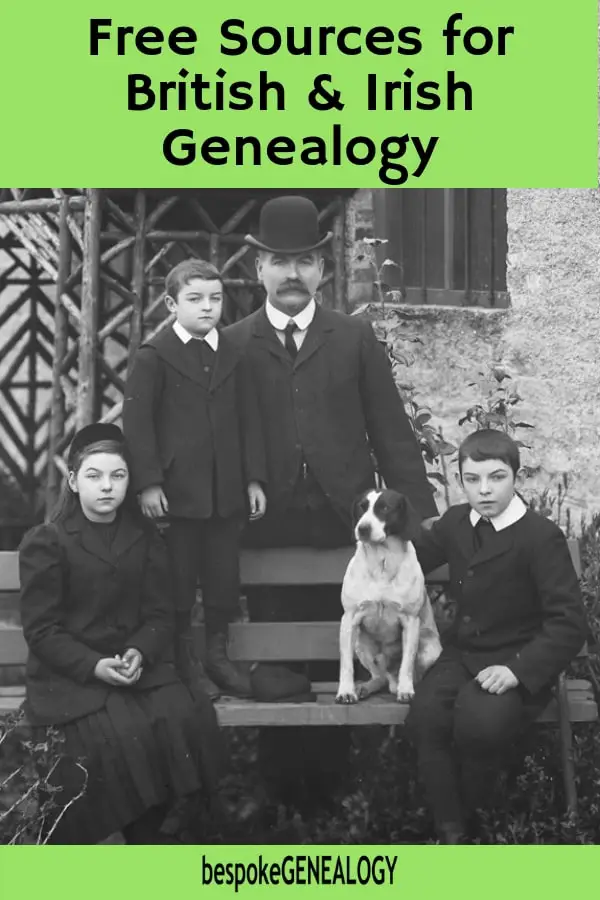
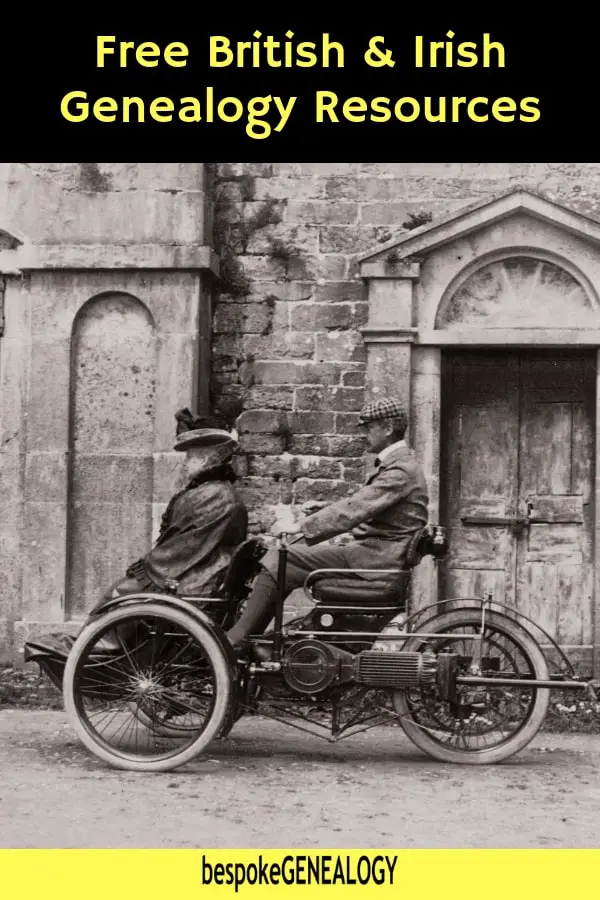
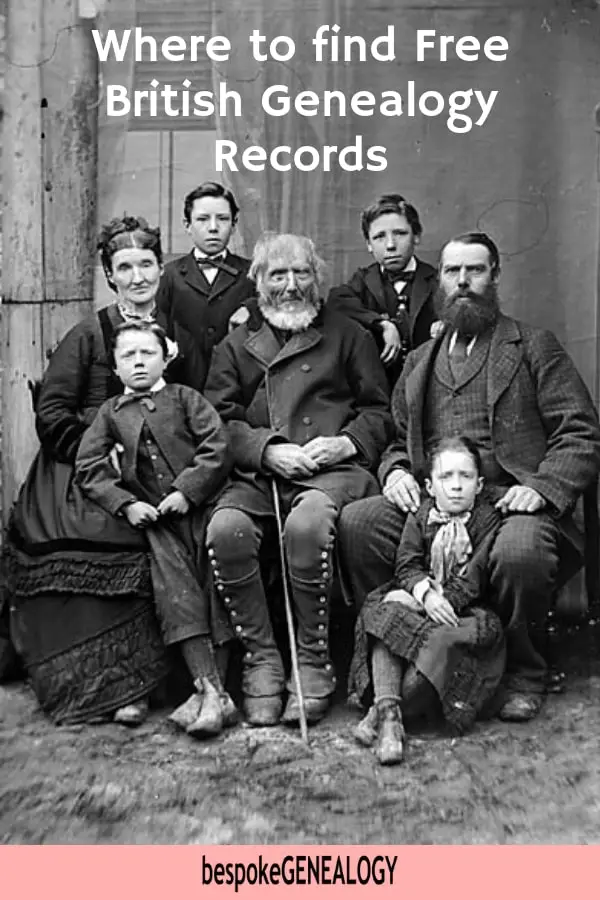
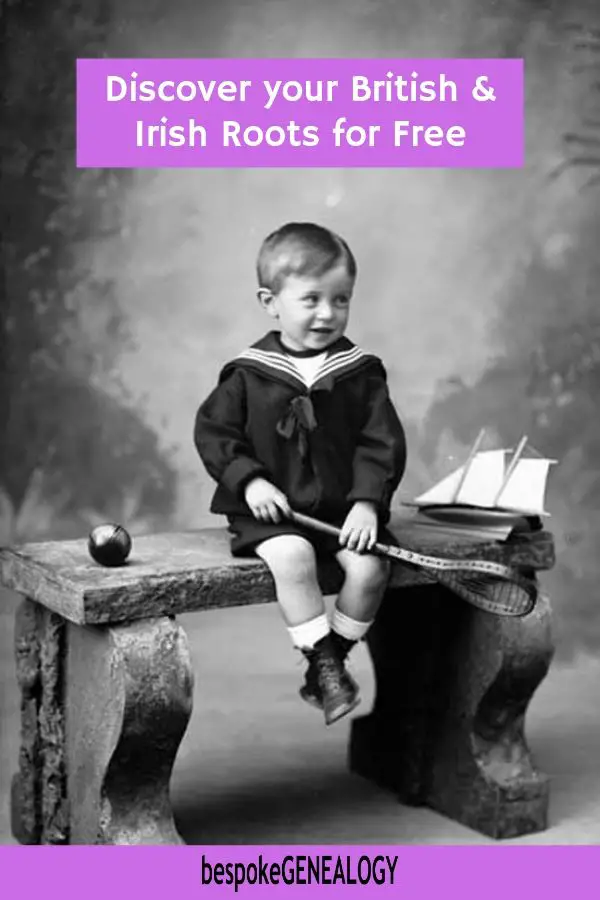
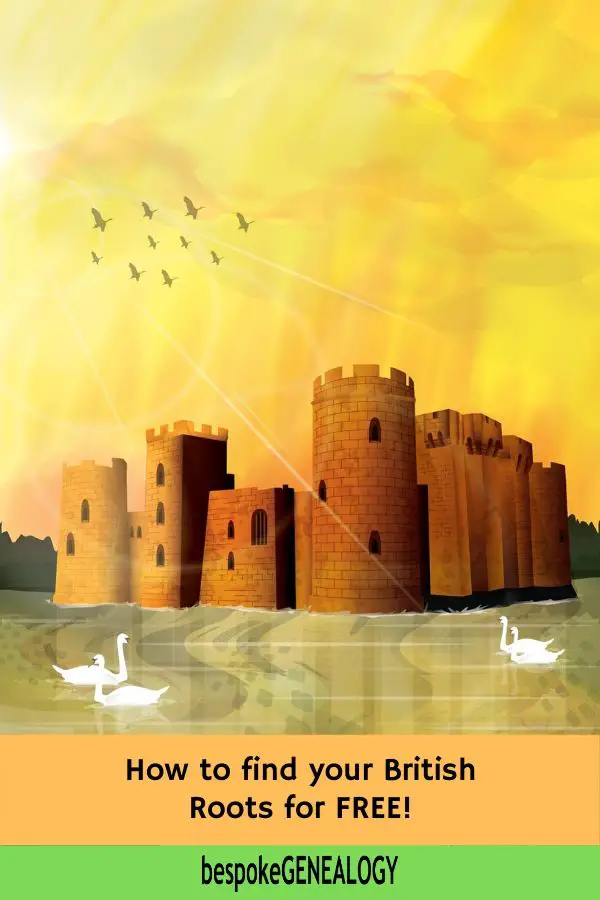
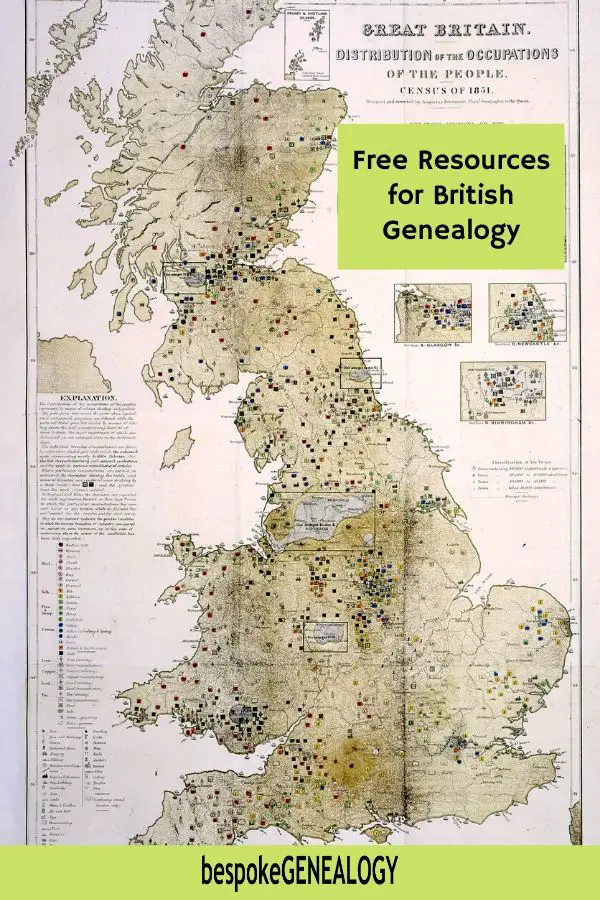
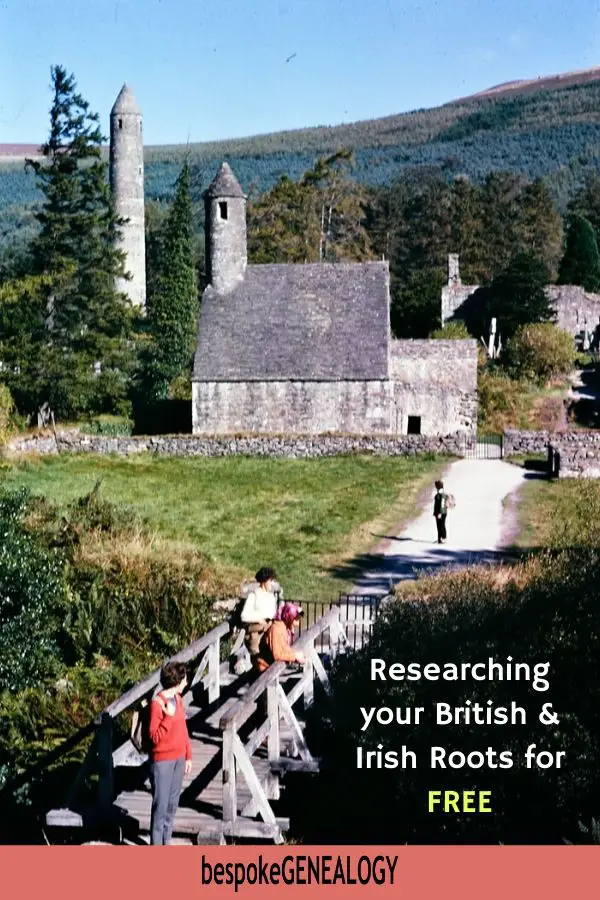
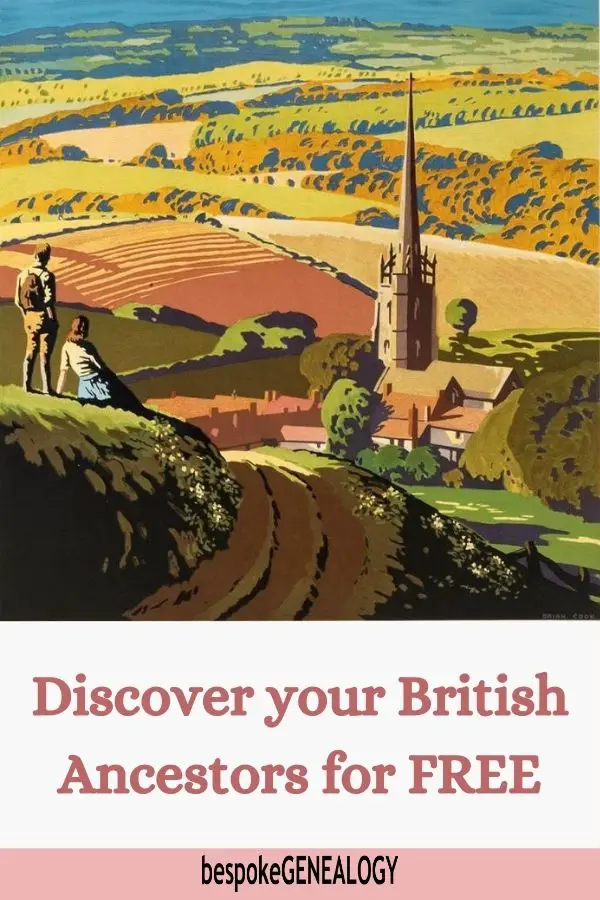
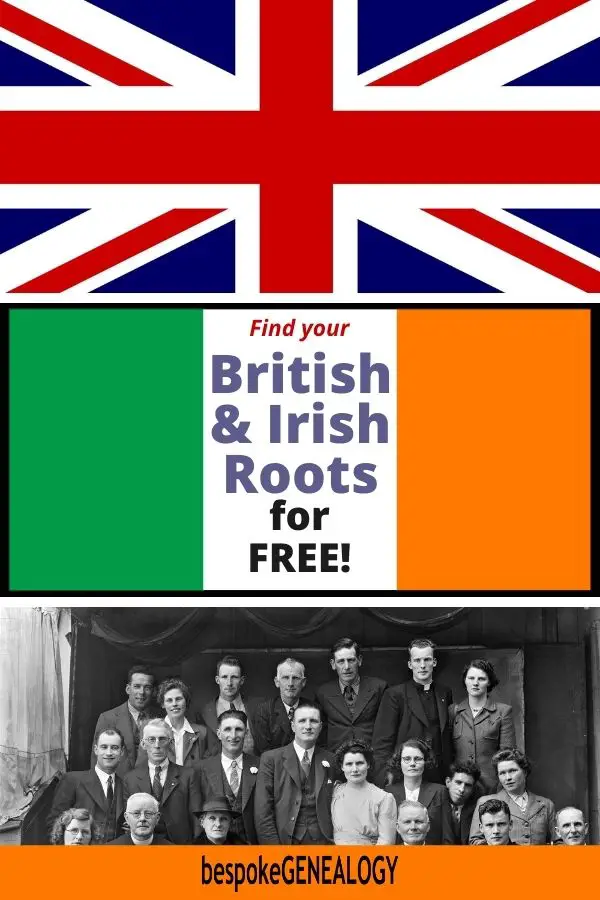
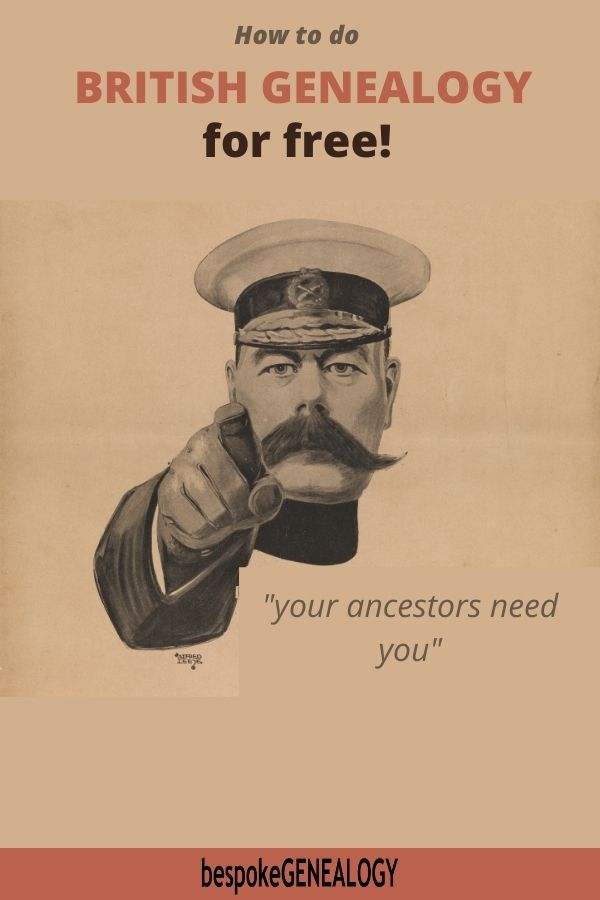
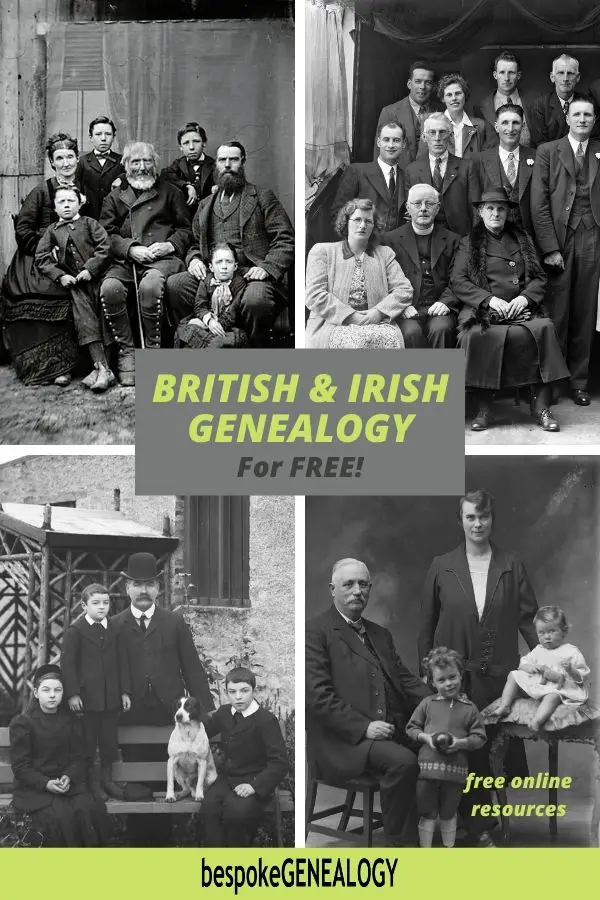
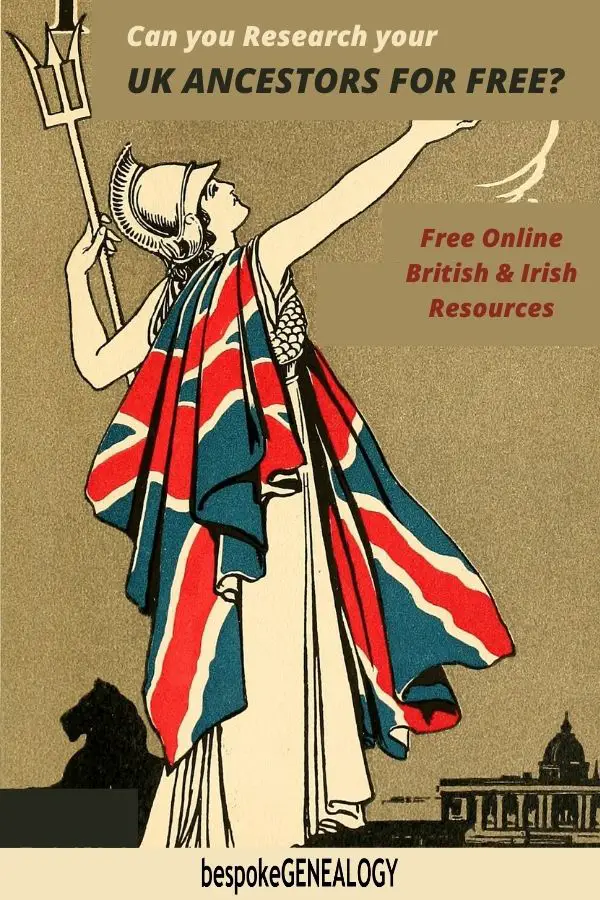
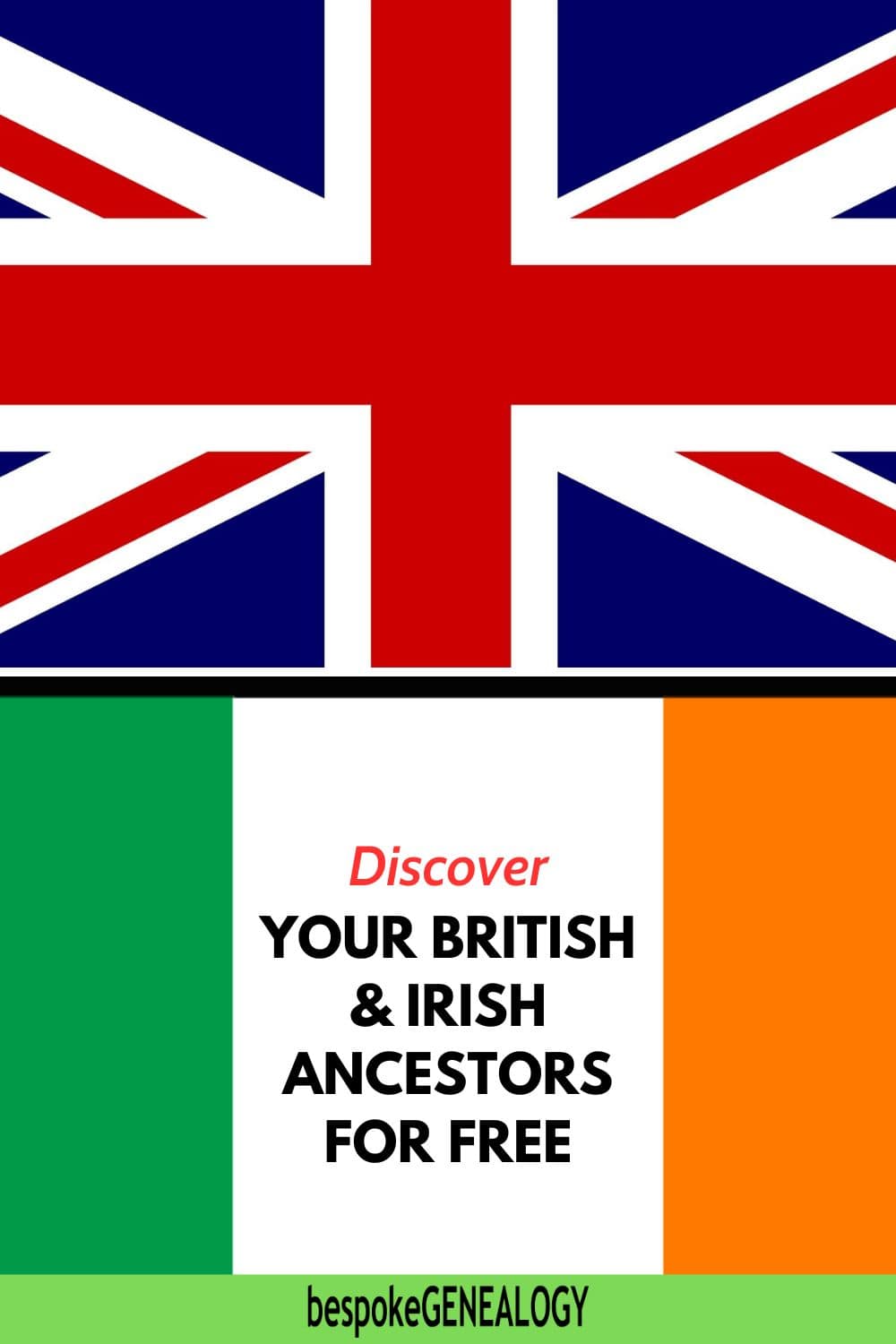

I like,your website. According to my dna,, I am 81% British 11% Irish, is there a way to trace my ancestry using only last name?
Thanks for your comment. I’m not really sure what you mean. Mitchell is a fairly common name with English/Scottish origins. See the surname database: https://www.surnamedb.com/Surname/Mitchell.
You can sign up for a free account at GEDMatch https://genesis.gedmatch.com/login1.php and upload your DNA results. If you get matches on the site, you may be able to make contact with cousins who are also researching the same family.
Good luck.